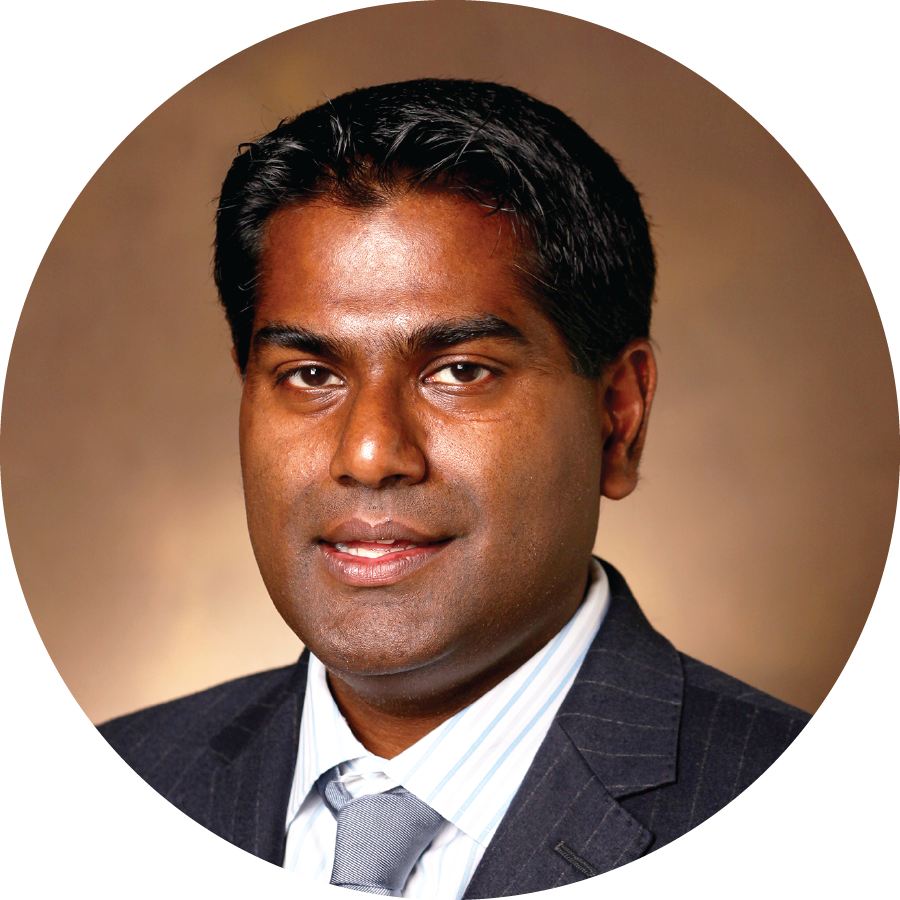Third-year diagnostic radiology resident Karthik M. Sundaram, M.D., Ph.D., and radiology faculty Sandeep Arora, M.B.B.S., with scientific mentor Charles Caskey, Ph.D., recently received two separate grants from the Radiological Society of North America’s (RSNA) Research & Education Foundation. The grants, which total $70,000, go into effect July 1, 2018.
 Research Resident/Fellow Grant
Research Resident/Fellow Grant
“Unlike some lung cancers and melanoma, BCa has low inherent immunogenicity, which prevents current immunotherapies from helping a patient’s natural immune system recognize tumors as foreign entities,” said Dr. Sundaram.
This study will investigate whether increased vascular permeability and cell death caused by microbubble-based focused ultrasound can increase immune-cell recruitment at BCa sites. If successful, this interventional approach may serve as an immunotherapy adjuvant in refractory BCa treatment.
“As a resident interested in academics, this is a wonderful opportunity for me,” added Dr. Sundaram. “I can't thank the mentorship from Drs. Caskey and Arora enough.”
 RSNA Research Seed Grant
RSNA Research Seed Grant
Together, Drs. Arora and Caskey will investigate the use of therapeutic ultrasound in association with immunotherapeutic drugs for treatment of aggressive BCa. As BCa is immunologically “cold,” therapeutic ultrasound could serve as an immune-priming agent to increase the suboptimal BCa-specific efficacy of current immunotherapeutic drugs.
“I am thankful to Charles for mentoring me in this endeavor while I strive to build a research career in therapeutic ultrasound,” said Dr. Arora
This study will investigate survival, tumor-growth and metastatic dissemination in a mouse model of aggressive BCa treated with various modes of therapeutic ultrasound along with an immunotherapy drug regimen which is comprised of an immunostimulatory ligand and a checkpoint inhibitor. If successful, this combination therapy approach could help patients with refractory BCa and have applicability in other immunologically “cold” tumors such as prostate cancer.
Dr. Caskey, Assistant Professor of Radiology and Principal Investigator of the Laboratory for Acoustic Therapy and Imaging at the Vanderbilt University Institute of Imaging Science, focuses on diagnostic and therapeutic applications of ultrasound with an emphasis on image-guided therapy and drug delivery. Immune effects of therapeutic ultrasound is a nascent area of research that Dr. Caskey has started pursuing.
“This is a very important area of research, and we have put together a great team of collaborators to evaluate immune effects of therapeutic ultrasound,” said Dr. Caskey. “These pilot funds will help us compile data for larger studies in the future.”
Justin M. Balko, Pharm.D., Ph.D., Assistant Professor of Medicine and Leader of Molecular Oncology in the Center for Cancer Targeted Therapies at Vanderbilt University Medical Center, is a consultant on both studies.